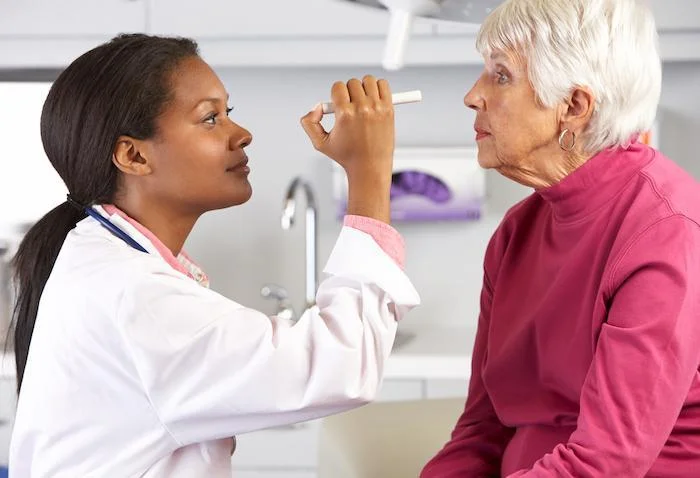The macula is the part of your retina that controls your central vision — in other words, the things that you see directly in front of you and that tend to be in sharpest focus. Due to aging, your lifestyle, and the environment, your macula may begin to degenerate.
Over time, you lose your central vision and can no longer see well enough to:
- Recognize faces
- Read
- Drive
- Cook
- Sew or do crafts
As with many vision problems, macular degeneration usually begins without noticeable symptoms. By the time you realize that you can’t see directly in front of your face, or that your vision is altered, the disease has already progressed.
Age-related macular degeneration (AMD) is the leading cause of blindness in the United States among women and men age 60 and older. However, if it’s detected early, you and your doctor can take steps to slow its progression.
At Eye Associates of Monmouth in Colts Neck, New Jersey, expert ophthalmologist John Ghobrial, MD, diagnoses and treats all types of macular degeneration. He encourages everyone age 50 and up to schedule annual comprehensive eye exams to catch AMD and other vision problems in their earliest, most treatable stages.
If you have a relative with AMD, you may worry that you’re at risk. If you don’t have a relative with AMD, you may think you’re free and clear. Although macular degeneration is hereditary, everybody is at risk for this potentially blinding condition as they age.
Types of Macular Degeneration
The most common of the two types of macular degeneration type is dry AMD, which occurs when your macula thins out simply due to aging. Everyone over age 50 is at risk for dry AMD. In its early stages, dry AMD has no symptoms. The disease progresses slowly.
Even though there’s no treatment for dry AMD, you can develop healthier habits to slow the disease’s progression and protect unaffected eyes. You may also benefit from taking an AREDS supplement, which contains:
- Vitamin C (500 mg)
- Vitamin E (400 IU)
- Lutein (10 mg)
- Zeaxanthin (2 mg)
- Zinc (80 mg)
- Copper (2 mg)
Wet AMD occurs suddenly and tends to progress rapidly. This condition is caused by the growth of new, weak blood vessels in the macula that leak blood. Treatments include anti-VEGF medications and photodynamic laser therapy.
Macular Degeneration Risk Factors
Whether you have a relative with macular degeneration or not, your genetic makeup is not the only risk factor. As we noted, simply growing older puts you at risk for dry AMD. Other risk factors include:
- Being Caucasian
- Smoking
- Having high cholesterol levels
- Eating a lot of saturated fats
- Being overweight or obese
- Having high blood pressure
- Having drusen (fatty deposits) in your eye
The more risk factors you have, the greater your risk. You can manage some risk by adopting healthy habits, such as eating more eye-friendly fresh vegetables, losing weight, and becoming more physically active. You should also quit smoking.
Test your vision daily
If you’re over 50, particularly if your ophthalmologist has identified the presence of drusen in one or more eyes, you’re at risk for AMD, whether you have a family history of the condition or not.
Test your vision daily by looking at an Amsler Grid. Notify us immediately if you notice wavy, curved, or dim areas on the grid.
Even with daily self-testing, don’t neglect your annual trip to the ophthalmologist. We use fundus photography and optical coherence tomography to monitor your retina and macula to discern the early signs of macular degeneration.
If you’re aging, you’re at risk for AMD. Schedule an eye exam at Eye Associates of Monmouth over the phone or via our online appointment request tool today.


